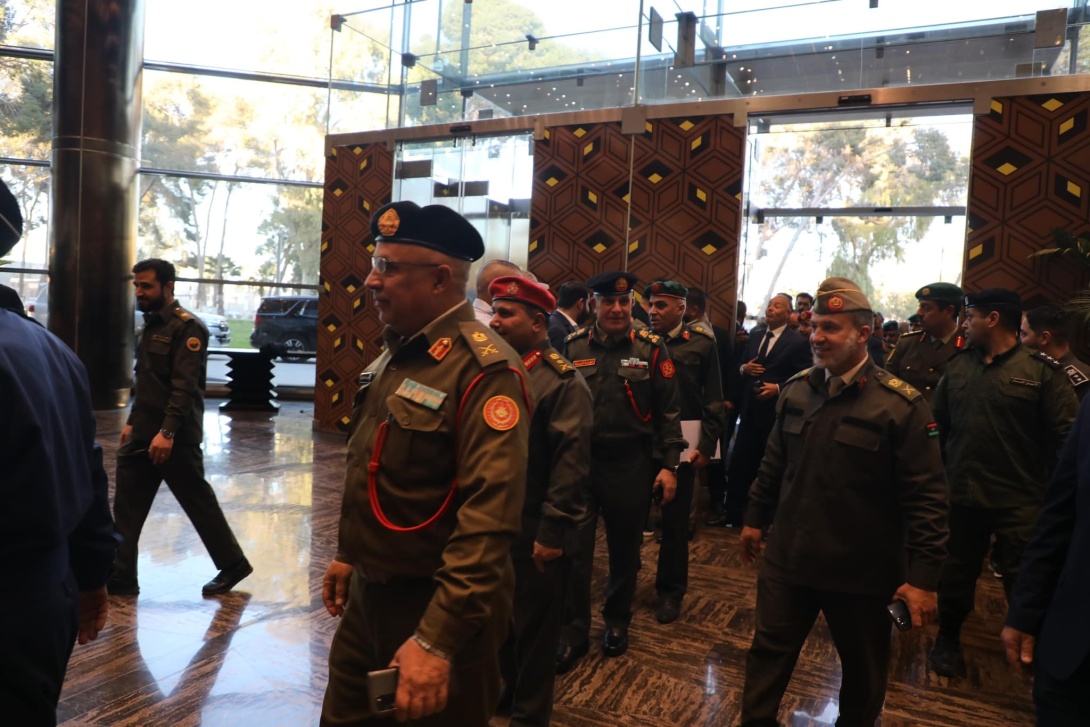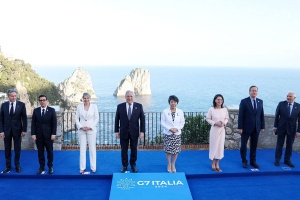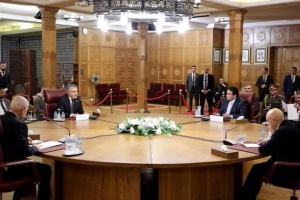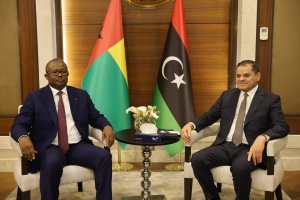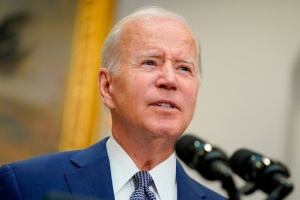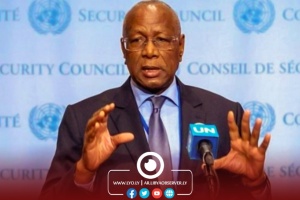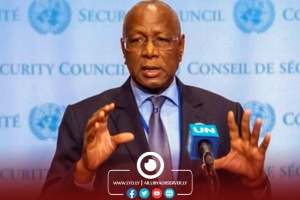Hotel Rixos in Tripoli hosted a high-level security meeting on Sunday, which the Interior Ministry said aims to unite efforts to organize elections and establish mechanisms for communication between security and military units.
The meeting, chaired by the Acting Minister of Interior of the Tripoli-based government (GNU), Emad Trabelsi, included representatives from Dbeibah's government, members of the 5+5 Joint Military Committee, the UN Envoy to Libya Abdoulaye Bathily, and military leaders from eastern and western Libya.
The meeting comes to unify efforts to secure elections by setting up mechanisms for communication between the security and military units and to emphasize rejection of division in order to get the country to safety, the Interior Ministry stated on Facebook.
The delegation, which arrived in the capital, Tripoli, on Sunday afternoon, included the "Chief of Staff" of Haftar’s forces, Abdel Razek Al-Nadhouri, the undersecretary of the Ministry of Interior in the parallel government, Faraj Qaim, the director of Khalifa Haftar’s office, Khairy Al-Tamimi, members of the Joint Military Committee, and leaders of several key battalions in the east.
Alongside Trabelsi, the Government of National Unity was represented by the commander of the 444th Brigade, Mahmoud Hamza, head of the Stability Support Apparatus, Abdul Ghani al-Kikli, commander of the 52nd Infantry Brigade, Mahmoud bin Rajab, commander of the Anti-Terrorism Force, Mukhtar al-Jahawi, commander of the 301st Infantry Battalion, Abdul Salam al-Zoubi, and commander of the Joint Operations Force, Brigadier General Omar Bogdada.
The Libyan Army Chief of Staff, Lieutenant General Muhammad al-Haddad, and his counterpart in Haftar's forces Al-Nadouri, did not attend the meeting, according to images posted on the Interior Ministry's social platforms, although the latter was among Haftar's delegation to Tripoli.
The session was a follow-up to Tunisia's meeting held in the past few days under the auspices of Bathily. The UN official said the meeting in Tunisia was to bridge the views of the two parties and a prelude to unifying the security and military forces.

